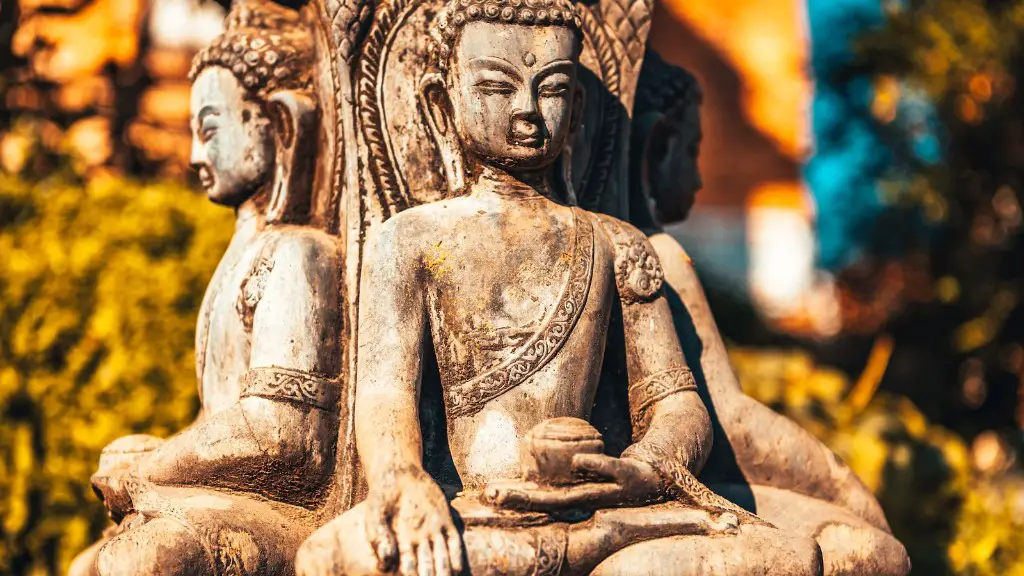Women in Judaism have an incredibly diverse range of roles, but the most prominent one is being a wife and mother. The role of a woman in Judaism has been argued about for centuries, with opinions about the exact role varying by community, time period, and other factors. In many communities, the woman has a significant religious, legal, and even political role.
Although the woman’s primary responsibility is still to her home and family, religious practice and obligations are also important. A woman is obligated to study Torah and carry out mitzvot (commandments). She does not have the same religious duties as a man, such as attending daily prayer services, but she does have a major role in spiritual life. Women are expected to participate in prayer services, recite blessings, and perform acts of charity.
The responsibilities of a wife and mother include managing the household, raising children, providing food and clothing, and supporting her husband. It is also traditional for a woman to be the primary educator for her children, teaching them about Judaism and what it entails. Women have often been the head of the family in times of hardship or poverty, when the husband was away or unable to support the family.
A woman’s involvement in Judaism doesn’t end there. Jewish law provides many opportunities for her to participate in the larger community. She can participate in Torah study, teach in a synagogue, care for the sick, and even serve as a judge. Women’s roles in the family, the community, and the wider society are essential for the functioning of the Jewish faith and people.
The exact role of women in Judaism has been a source of debate. Traditional communities such as Orthodox Judaism stipulate very specific roles for women, while more progressive communities tend to encourage women to take a more active role. There are also questions of halacha (Jewish law) which must be considered when discussing a woman’s role. In some cases, halacha can be interpreted in different ways, leaving room for varied opinions on the topic.
Though the role of women in Judaism has changed over the centuries, their importance in the community remains. Women play an essential role in religious and spiritual life and are an important part of Jewish history, culture, and society. As Judaism evolves and changes, so does the role of women, ensuring that their presence and significance are acknowledged and honored.
Making Decisions For The Family
In a traditional Jewish family, the mother typically has the responsibility of making day-to-day decisions for the family. She is expected to make household decisions based on her experiences and her knowledge of Jewish law and tradition. Depending on the family’s location and background, the mother may be called upon to make decisions on everything from food and clothing choice to family finances. She is also responsible for teaching children the basics of Judaism and how to live a Jewish life.
The mother is expected to be an example to her children of how to live a moral and ethical life. This may include teaching them about tzedakah, or charity, the importance of the Sabbath and holidays, and the importance of observance. In many traditional families, she is also looked to as a source of spiritual guidance and support, which can include counseling and religious guidance. In some communities, the mother is even seen as the head of the household and is consulted on important issues such as marriage, business plans, and other family matters.
Naturally, it is important for the mother to have a good understanding of halacha, or Jewish law. Such an understanding allows her to make wise, informed decisions for her family and to guide her children in making higher ethical choices. It is also helpful for her to have a basic knowledge of Torah and Talmud, as important issues may be decided with moral guidance from these ancient Jewish texts.
Ultimately, it is the mother’s responsibility to ensure that her children grow up with a strong sense of Jewish identity and are instilled with the principles and values of the Jewish faith. Her role in molding her children into upstanding adults should not be underestimated.
Running Charitable Organizations
Women’s roles in Judaism extend beyond the home to include philanthropic and charitable work. Women are often at the forefront of running charitable and philanthropic organizations. This includes running food banks and soup kitchens and organizing clothing drives and other service initiatives. Women are also active in helping immigrants and refugees, providing material and spiritual support in the first months of integration into a new community.
The importance of charitable work can be seen throughout the Jewish faith. Jewish tradition emphasizes the importance of helping others, a value which is reflected in the many charitable organizations and initiatives that exist. This philanthropic spirit is often upheld by women, who take it upon themselves to ensure that those in need are being cared for.
In some communities, charitable work is a social obligation for women. According to Jewish law, women have an obligation to serve the needy, a mitzvah known as tsedakah. Tzedakah can encompass a range of actions, from providing food and clothing to giving financial assistance or offering emotional or spiritual support.
Women’s involvement in the charitable sector is not only beneficial for those in need, but also for Jewish society as a whole. By serving those who are less fortunate, women help to promote justice and peace in the community. By to actively engaging in tzedakah, women help to remind the community of the importance of charitable work and to uphold the values and principles of the Jewish faith.
Leadership and Education
In many communities, women are increasingly taking on leadership roles and moving into male-dominated roles such as rabbis and cantors. This is a relatively recent development, given that only in recent decades have women been accepted into these roles. This trend reflects the changing attitudes towards the role of women in Judaism and the fact that women are now seen as capable of leading and teaching.
In addition to leading, women also have an important role to play in educating others about Judaism. Women are often found teaching in synagogues, schools, and other educational settings. Furthermore, women are often at the forefront of disseminating information about Jewish belief and practice to the wider community. This includes developing programs to educate people about the Jewish faith, writing books and articles, and giving lectures and presentations on Jewish topics.
The educational aspect of women’s roles in Judaism can be seen in their involvement in publishing and journalism. Many women’s magazines and websites focus on providing information about Judaism, inspiring others to live in accordance with Jewish law and principle, and spreading knowledge of the faith.
Women’s involvement in leadership and education is important to Jewish society. By actively engaging in leadership roles, women are showing their commitment to the Jewish faith and their willingness to take on tasks which were once traditionally carried out by men. By educating others, women are helping to pass on the values and teachings of Judaism and ensuring that the faith is preserved for generations to come.
Influence In Public Life
Women’s roles in Judaism have traditionally been limited to the home and the family, with very little involvement in public life. However, in recent years, women’s influence in public life has been increasing. Women are increasingly becoming public figures in religious and political life, a trend which has been met with both support and resistance.
In some countries, women are not allowed to occupy positions of leadership and must depend on their husbands to represent them and their views. However, in other countries, women’s involvement in public life is accepted and even encouraged. In Israel, for example, women are increasingly being elected to high positions, including the Knesset, the Israeli parliament. In addition, women occupy prominent roles in politics, media, education, and the armed forces.
In certain religious circles, women are gaining influence in public life through their involvement in higher education. And in many countries, women are taking an active role in decision-making and policy-making at the highest levels. This is an important development that reflects changing attitudes towards the role of women and shows that women can, and should, be involved in all aspects of public life.
Women’s influence in public life is beneficial not only for women themselves but also for the Jewish faith and people. By taking on positions of leadership, women are breaking down traditional barriers and encouraging society to recognize their capabilities in many spheres. They are also helping to promote justice, equality, and peace in the Jewish community and beyond.
Women’s Influence In The Arts
Women’s roles in Judaism extend far beyond the home and the family, and can be seen in the arts and culture. Women’s involvement in the arts has a long history, from the founding of the first Jewish theater in the late 19th century to the current trend of female-led artistic initiatives. Women are increasingly playing an important role in the arts, from performing to writing and directing.
Women’s participation in the arts can be seen in theater, music, film, and literature. Women have been writing, directing, and starring in films and plays for decades, with many notable films and plays being written, directed, and/or produced by women. Women are also active in music and literature, creating works that reflect the Jewish experience and telling stories that often challenge traditional interpretations of gender roles in the faith.
The contributions of women to the arts are important to the Jewish community. Women’s artistic works help to broaden the perspective of the faith, offering new ways of interpreting the scriptures and allowing people to explore the complexities of Jewish identity. By challenging gender roles and exploring new interpretations of Jewish belief and practice, women’s artistic works help to expand the dialogue on Judaism and to push the boundaries of religious thought.
Ultimately, women’s roles in Judaism are important and varied. From running charitable organizations to taking on leadership roles, from contributing to the arts to educating others about the faith, women play an essential role in the Jewish community and have an invaluable impact on religious life. As Jewish society continues to evolve, women will continue to shape the faith and ensure that their presence and significance are acknowledged and respected.




